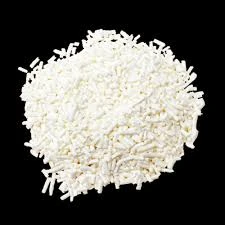
fat emulsifiers
The Role of Fat Emulsifiers in Food Products
Fat emulsifiers play a crucial role in the food industry, enhancing the texture, stability, and overall quality of various products. These specialized ingredients facilitate the mixing of fat and water, which are inherently immiscible, creating stable emulsions used in a wide variety of foods such as dressings, sauces, and dairy products.
Emulsifiers are typically amphiphilic molecules, meaning they possess both hydrophilic (water-attracting) and hydrophobic (water-repelling) properties. This unique structure allows them to interact with both oil and water molecules, effectively reducing the surface tension and promoting a uniform dispersion. Common examples of natural emulsifiers include lecithin, found in egg yolks and soybeans, and mono- and diglycerides derived from fats and oils.
One of the primary functions of fat emulsifiers is to improve the texture and mouthfeel of food products. For instance, in salad dressings, emulsifiers create a smooth and creamy consistency, preventing oil separation and ensuring a pleasurable dining experience. In baked goods, emulsifiers can enhance the volume and softness, contributing to a more appealing final product.
fat emulsifiers

Moreover, the use of fat emulsifiers can significantly extend the shelf life of food products
. By stabilizing emulsions, they help prevent the separation of ingredients, reducing the risk of spoilage and maintaining product quality over time. This is particularly important for commercial food manufacturers who strive to meet consumer demands for convenience and durability in packaged foods.In addition to their functional benefits, fat emulsifiers also contribute to nutritional aspects. Some emulsifiers can aid in the absorption of fat-soluble vitamins, improving the bioavailability of essential nutrients in the diet. However, it is essential to balance the use of emulsifiers with mindful consumer practices, as excessive intake of certain emulsifiers may lead to adverse health effects.
Today, with the rise of health-conscious consumers, there is a growing interest in plant-based and clean-label emulsifiers. The food industry is increasingly exploring alternatives to synthetic emulsifiers, focusing on natural sources that align with consumer preferences for wholesome and minimally processed foods.
In conclusion, fat emulsifiers are vital components in the food industry, providing essential functionalities that enhance product quality and consumer satisfaction. As innovation continues, the exploration of natural emulsifiers and their applications will likely shape the future of food formulation, promoting healthier options while meeting the demands of an ever-evolving market.
-
nitrile-rubber-honoring-strict-production-standardsNewsAug.22,2025
-
aspartame-ingredients-honoring-food-safety-valuesNewsAug.22,2025
-
fertilizer-for-balanced-plant-nutritionNewsAug.22,2025
-
cyanide-gold-processing-with-high-purity-additivesNewsAug.22,2025
-
formic-acid-in-textile-dyeing-applicationsNewsAug.22,2025
-
aluminum-hydroxide-gel-in-skincare-productsNewsAug.22,2025
-
Regulatory Compliance for Global Mining Chemicals UseNewsAug.12,2025
Hebei Tenger Chemical Technology Co., Ltd. focuses on the chemical industry and is committed to the export service of chemical raw materials.
-

view more DiethanolisopropanolamineIn the ever-growing field of chemical solutions, diethanolisopropanolamine (DEIPA) stands out as a versatile and important compound. Due to its unique chemical structure and properties, DEIPA is of interest to various industries including construction, personal care, and agriculture. -

view more TriisopropanolamineTriisopropanolamine (TIPA) alkanol amine substance, is a kind of alcohol amine compound with amino and alcohol hydroxyl, and because of its molecules contains both amino and hydroxyl. -

view more Tetramethyl Thiuram DisulfideTetramethyl thiuram disulfide, also known as TMTD, is a white to light-yellow powder with a distinct sulfur-like odor. It is soluble in organic solvents such as benzene, acetone, and ethyl acetate, making it highly versatile for use in different formulations. TMTD is known for its excellent vulcanization acceleration properties, which makes it a key ingredient in the production of rubber products. Additionally, it acts as an effective fungicide and bactericide, making it valuable in agricultural applications. Its high purity and stability ensure consistent performance, making it a preferred choice for manufacturers across various industries.





